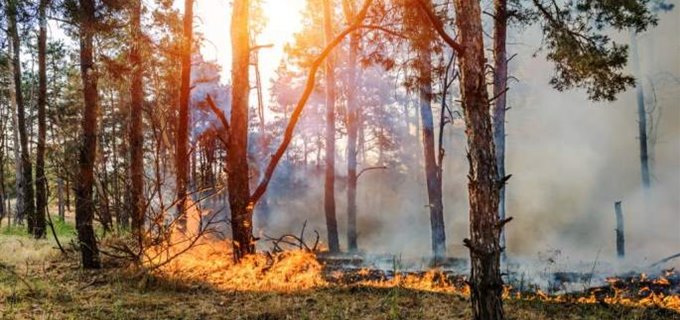Get News & Updates Directly To Your Inbox


Get News & Updates Directly To Your Inbox

Find A Doctor Or Hospital In Your Network.
Wildfires can threaten your immediate safety if you are in an active fire and evacuation area. Smoke from wildfires often carries toxic irritants that can trigger asthma attacks and lung health problems. Winds spread the toxic smoke across the country.
Exposure can cause chest pain, a fast heartbeat, wheezing, and an asthma attack, says the Centers for Disease Control and Prevention ![]() (CDC). Besides coughing and trouble breathing, many people have symptoms similar to those caused by a sinus infection or allergies. Headaches, sore throat, itchy eyes, a runny nose and feeling tired are common.
(CDC). Besides coughing and trouble breathing, many people have symptoms similar to those caused by a sinus infection or allergies. Headaches, sore throat, itchy eyes, a runny nose and feeling tired are common.
The elderly, pregnant women, children and people with chronic heart and lung diseases are at higher risk. So are individuals who work outdoors. Talk with your doctor about how to prepare for the smoke if you are at risk.
As wildfires create more and more smoke, it’s important to take simple steps to reduce exposure to smoke and ash particle pollution:
Keeping your home air quality safe is important:
If you have chronic lung health issues, the American Lung Association ![]() encourages you to check in with your doctor before you make any changes to your care plan. Your doctor will want to consider changes to your medicine, mask or oxygen use based on the air quality in your area and how you are feeling.
encourages you to check in with your doctor before you make any changes to your care plan. Your doctor will want to consider changes to your medicine, mask or oxygen use based on the air quality in your area and how you are feeling.
Originally published 8/26/2020; Revised 2021, 2023
Blue Cross and Blue Shield of Texas, a Division of Health Care Service Corporation,
a Mutual Legal Reserve Company, an Independent Licensee of the Blue Cross and Blue Shield Association
© Copyright 2025 Health Care Service Corporation. All Rights Reserved.
Verint is an operating division of Verint Americas, Inc., an independent company that provides and hosts an online community platform for blogging and access to social media for Blue Cross and Blue Shield of Texas.
![]() File is in portable document format (PDF). To view this file, you may need to install a PDF reader program. Most PDF readers are a free download. One option is Adobe® Reader® which has a built-in screen reader. Other Adobe accessibility tools and information can be downloaded at https://access.adobe.com.
File is in portable document format (PDF). To view this file, you may need to install a PDF reader program. Most PDF readers are a free download. One option is Adobe® Reader® which has a built-in screen reader. Other Adobe accessibility tools and information can be downloaded at https://access.adobe.com.
![]() You are leaving this website/app ("site"). This new site may be offered by a vendor or an independent third party. The site may also contain non-Medicare related information. Some sites may require you to agree to their terms of use and privacy policy.
You are leaving this website/app ("site"). This new site may be offered by a vendor or an independent third party. The site may also contain non-Medicare related information. Some sites may require you to agree to their terms of use and privacy policy.
Powered by Verint